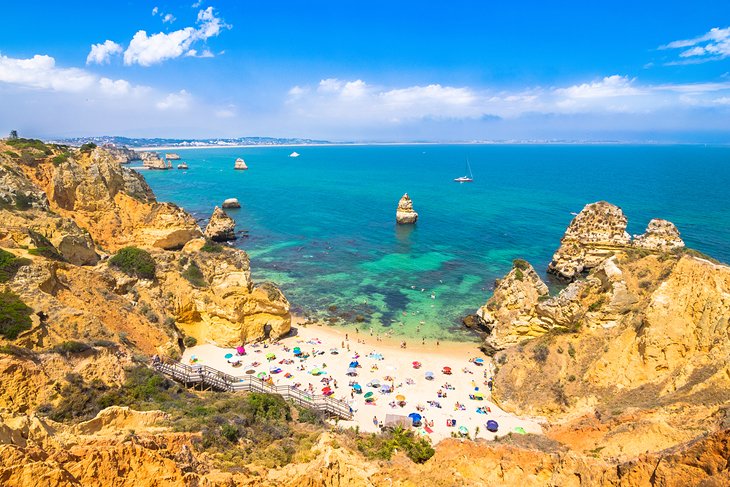Thailand, a land of stunning beaches, exquisite temples, and vibrant street markets, captivates millions of tourists each year. Its rich culture and warm hospitality make it a top destination for travelers seeking adventure and relaxation alike. But amidst the allure of its tropical landscapes and the bustling nightlife of Bangkok, lies a tapestry of laws that might raise an eyebrow or two. These aren’t your everyday regulations. They are unique, sometimes perplexing, and undoubtedly peculiar to outsiders. As we peel back the layers of Thailand’s legislative onion, we uncover a collection of laws so bizarre, they’re bound to leave you scratching your head in wonder. Welcome to the world of Thailand’s most weird laws – a testament to the country’s distinctive approach to order and society.
Understanding Thailand’s Legal System
Brief Overview
Thailand’s legal landscape is as intriguing as its cultural heritage. The foundation of its legal system is a unique blend of traditional Thai principles and Western legal frameworks. This combination has created a set of laws that are both modern and deeply rooted in the country’s rich history.
The Structure of the Legal System
At its core, Thailand’s legal structure borrows elements from the civil law system, with comprehensive statutes guiding judicial decisions. However, it diverges in its incorporation of local customs and Buddhist values, which influence the interpretation and application of these laws. The result is a legal system that reflects the societal norms and moral values of the Thai people.
Influence of Common Law and Buddhist Principles
Unlike purely common law systems where past court decisions heavily influence future rulings, Thailand’s system places more emphasis on written codes. Yet, it’s the infusion of Buddhist principles that truly sets it apart. Compassion, karma, and social harmony are underlying themes that subtly shape legal proceedings and judgments.
The Monarchy’s Role
Respect for the monarchy is paramount in Thai society, and this extends into its legal system. Laws that protect the dignity of the Royal Family are strictly enforced, with severe penalties for any actions deemed disrespectful. The reverence for the monarchy is more than tradition; it’s a fundamental aspect of Thailand’s identity and legal framework.
Top 10 Weird Laws in Thailand
Thailand is known for its beautiful landscapes, delicious cuisine, and rich culture. However, it also has some laws that might seem unusual to foreigners. Let’s explore the top 10 weird laws in Thailand, focusing on a few specific examples.
No Shirtless Driving
In Thailand, driving without a shirt on is more than just a fashion faux pas; it’s against the law. This regulation applies to both motorcycles and vehicles. The reasons behind this peculiar law might include:
- Safety: Driving shirtless can lead to sunburns or distractions, potentially causing accidents.
- Cultural Norms: Thailand values modesty and proper attire in public spaces.
National Anthem Respect
Thailand holds its national anthem in high esteem. There are specific laws regarding the conduct during the anthem, which is played twice daily throughout the country. When the anthem is played, everyone is expected to:
- Stand still: Showing respect and honor to the nation and the monarchy.
- Stop walking or driving: All activity comes to a halt, reflecting the country’s deep sense of national pride.
Underwear Laws (Debunked)
There’s a popular myth that it’s illegal to go out in public in Thailand without underwear. Let’s set the record straight:
- Cultural Norms: While modesty is highly valued in Thai culture, there is no specific law mandating the wearing of underwear.
- Misconception: This misunderstanding may stem from the general emphasis on proper attire and public decency in Thailand.
Restrictions on Playing Cards in Public
In Thailand, there’s a surprising law that governs the use of playing cards. Here’s what you need to know:
- Legal Framework: The Playing Cards Act prohibits individuals from possessing more than 120 playing cards without government permission.
- Potential Consequences: Violation of this law can lead to fines or even imprisonment, especially if the cards are used for gambling outside licensed venues.
- Cultural Context: This law aims to curb illegal gambling, a concern in many communities across Thailand.
Defacing Currency
Thai law takes respect for its currency—and by extension, the monarchy—very seriously. Here are the key points:
- Law Details: It’s illegal to deface, tear, or otherwise damage Thai currency. This includes writing on banknotes or mutilating them in any way.
- Respect for the King: Since the currency features the image of the King, damaging it is seen as a sign of disrespect to the monarchy.
- Consequences: Individuals caught defacing currency can face legal penalties, highlighting the importance of respecting the symbolic and monetary value of Thai banknotes.
Fruit Sale Restrictions: The Case of Durian
Durian, known as the “king of fruits,” is notorious for its strong smell. In Thailand, there are specific laws regarding its sale and consumption in public places:
- Regulations: Due to its overpowering odor, the sale and consumption of durian are restricted in certain public areas, including hotels, airplanes, and public transportation.
- Reasoning: These restrictions aim to maintain public comfort and hygiene, as the fruit’s smell can be overwhelming and unpleasant for some people.
- Cultural Significance: Despite these restrictions, durian remains a beloved delicacy in Thailand, enjoyed by many for its unique flavor and texture.
Sidewalk Food Vendors
Thailand’s street food is world-renowned, offering an array of flavors that attract foodies globally. However, regulations surrounding sidewalk food vendors are in place to manage this bustling industry.
- Location Restrictions: Vendors must adhere to designated areas and times, aimed at reducing congestion and maintaining public safety.
- Hygiene Standards: Compliance with health and hygiene standards is strictly monitored to ensure the well-being of consumers.
Fight Like Gentlemen (Sort Of)
Muay Thai, Thailand’s traditional martial art, is known for its rigorous use of elbows and knees. Interestingly, there exists a now mostly symbolic law that prohibits the use of these limbs in fights, emphasizing the sport’s spirit of fairness and discipline.
- Historical Context: This rule harks back to earlier times, promoting a style of combat that honors skill over brute strength.
- Modern Practice: While the law is largely symbolic today, the respect for fair play remains deeply ingrained in the sport.
Bringing a Sim Card
Travelers often wonder about the legality of bringing foreign SIM cards into Thailand. Here’s what you need to know:
- No Restrictions: There are no legal restrictions on bringing foreign SIM cards for personal use.
- Registration Requirements: However, purchasing a local SIM card requires you to register it using your passport, a measure aimed at enhancing national security.
Respecting the Royal Family
The reverence for the monarchy is a cornerstone of Thai culture, and laws protecting the dignity of the Royal Family are strictly enforced.
- Lèse-majesté Laws: These laws make it illegal to defame, insult, or threaten any member of the Royal Family, with severe penalties for those found guilty.
- Cultural Significance: Understanding and respecting this aspect of Thai culture is crucial for all visitors, as it reflects the deep respect Thais hold for their monarchy.
Conclusion
As we’ve explored, Thailand’s legal landscape includes a fascinating array of laws, from the strictly enforced to the curiously unique. While some of these regulations might seem peculiar to outsiders, they are part of the fabric that maintains the country’s social order and cultural integrity. Despite these unusual laws, Thailand continues to be a hospitable and vibrant destination for travelers from around the globe. The key to a fulfilling visit lies in respecting the local customs and legal boundaries, ensuring that both visitors and hosts enjoy the best possible experience.
FAQ
Is it illegal to disrespect the King?
Yes, showing disrespect towards the King and the Royal Family is illegal in Thailand, carrying potential legal consequences. Laws regarding lèse-majesté are taken very seriously.
Can I bring chewing gum to Thailand?
Bringing chewing gum to Thailand is technically illegal, especially if intended for sale, but this law is rarely enforced for small quantities meant for personal use.
Do I need a visa to visit Thailand?
Whether you need a visa to visit Thailand depends on your nationality and the length of your stay. Many countries have visa exemption agreements for short visits, but it’s essential to check the latest requirements before traveling.
What are some cultural norms I should be aware of?
When visiting Thailand, remember to:
- Dress modestly, especially when visiting temples.
- Remove shoes before entering someone’s home or certain public spaces like temples.
- Avoid touching people’s heads, as the head is considered sacred in Thai culture.
- Show respect towards images of the King and the Royal Family.
Where can I find more information about traveling to Thailand?
For the most accurate and up-to-date travel information, it’s best to consult official resources:
- Tourism Authority of Thailand
- Thai Embassy or Consulate websites for visa and travel advisories.
By staying informed and mindful of Thailand’s unique laws and cultural practices, visitors can ensure a memorable and respectful experience in this beautiful country.






